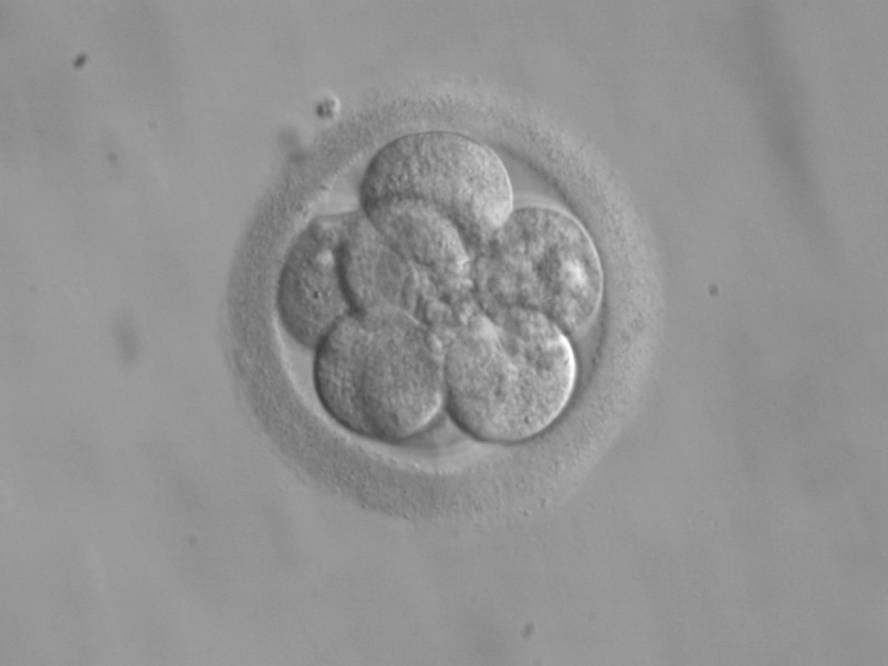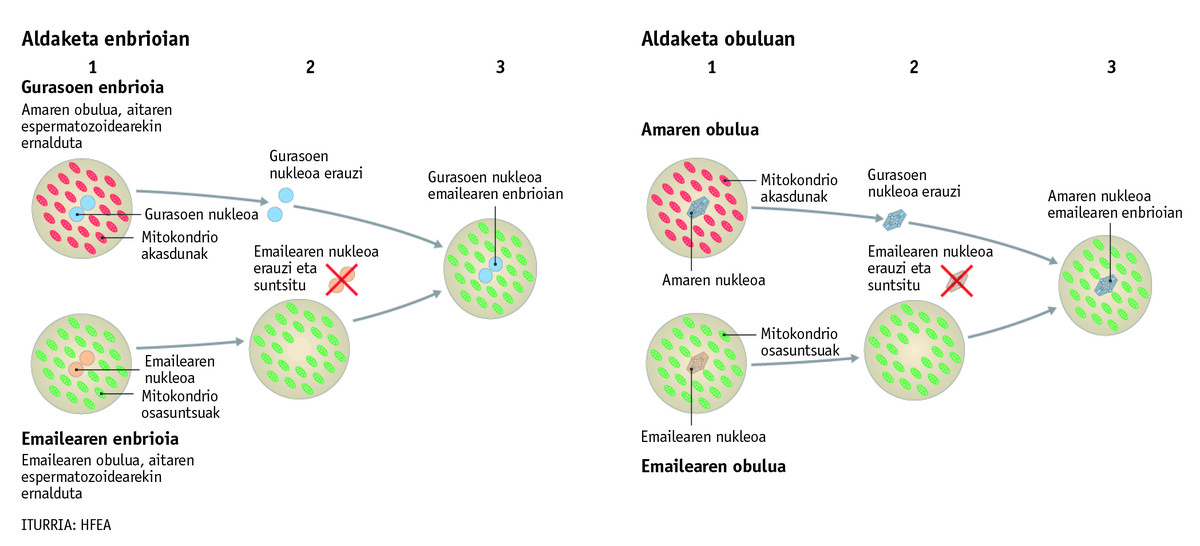Britain authorizes the creation of children with DNA from three people
In fact, one in 5,000 children is born with some serious brain, heart, or muscle disease from mutations transmitted through the mother. In these cases, the mother does not suffer the disease, but her children do suffer it because of the DNA in the mitochondria of the fertilized egg.
Researchers have spent years researching techniques to overcome this problem and have already prepared two methods with the same objective: to replace the DNA of their mother's mitochondria with a donor.
In one of the methods, the replacement is done in the egg: the eggs of the mother and the donor are taken, the nuclei of both are removed and the mother's nucleus is inserted into the donor's egg (with healthy mitochondria). It then fertilizes with the parent's sperm and is placed in the uterus.
In the other method, the change is done in the embryo. This fertilizes the eggs of the mother and the donor. The nuclei of both are removed and the parent nucleus is inserted into the fertilized egg of the nucleus donor. In this way an embryo with parental genetic information is created in the nucleus, with healthy mitochondria from the donor.
Since the embryo also contains the DNA of a donor, these embryos have been called “children of the three parents”, which has also generated an ethical debate. In any case, only 0.1% of the embryonic DNA corresponds to the donor.
In addition to the ethical objection generated by foreign DNA, the security issue has also generated concern. Although the researchers have confirmed their safety and the Parliament has approved it, the last word is the Human Fertilization and Embryology Authority (AIAF). In fact, it is the entity that authorizes hospitals to apply the technique, but must first ensure their safety.
Therefore, although the British Parliament has lifted the ban so far, it will not yet be possible to apply the technique. However, researchers want to make their first attempt this year, so it is possible that next year the first child will be born with this technique.
Meanwhile, in the United States, the FDA, the food safety and drug safety agency, is studying whether the technique is safe. The decision in Britain is very likely to affect both the United States and many other countries.
"This entry participates in the 3rd #Culture Scientific Festival"








